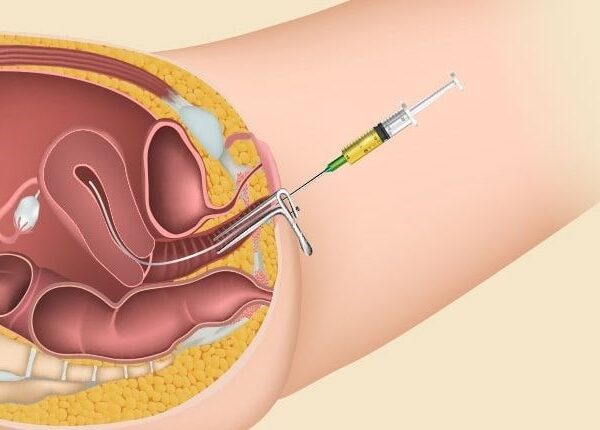As we age, our bodies undergo significant changes, and the digestive system is no exception. For seniors, these changes can lead to various gastrointestinal problems that require specialized care. Understanding the unique challenges older adults face regarding digestion is crucial for maintaining their overall health. This is where gastrology, the branch of medicine focused on the digestive system, becomes essential. Gastrology treatments specifically cater to age-related digestive issues, ensuring seniors receive the care they need.
Common Digestive Issues in Seniors
Several digestive problems tend to arise or worsen with age, often due to the natural slowing down of bodily functions. These include:
Constipation: One of the most common complaints among seniors, constipation occurs due to decreased physical activity, reduced fluid intake, and medications. Nearly 40% of adults aged 65 and above suffer from constipation, with women being more affected than men.
Gastroesophageal Reflux Disease (GERD): GERD, or chronic acid reflux, becomes more frequent with age. Seniors often experience weakened esophageal muscles, which makes it harder for food and acid to stay in the stomach, leading to heartburn and discomfort. According to research, nearly 20% of the elderly population experiences GERD symptoms regularly.
Diverticulosis: Diverticulosis occurs when small pouches form in the walls of the colon. These pouches can become inflamed or infected, causing abdominal pain, cramping, and changes in bowel habits. This condition becomes more common after the age of 60, affecting up to 50% of people in this age group.
Peptic Ulcers: Seniors are at higher risk of developing peptic ulcers due to increased use of nonsteroidal anti-inflammatory drugs (NSAIDs) and reduced stomach lining protection, making them more susceptible to stomach acid damage.
Bowel Incontinence: This condition, often caused by the weakening of the pelvic floor muscles, nerve damage, or diarrhea, can severely impact the quality of life for many seniors. Research indicates that bowel incontinence affects up to 15% of seniors over the age of 70.
Age-Related Changes in the Digestive System
Reduced Digestive Enzymes: With age, the body produces fewer digestive enzymes, which can lead to incomplete digestion and malabsorption of essential nutrients like vitamin B12, iron, and calcium.
Weakened Muscles: The muscles of the digestive tract, particularly in the esophagus and intestines, weaken over time, slowing down the movement of food through the system. This slowing contributes to constipation and other digestive issues.
Decreased Sensitivity: The body’s sensitivity to food stimuli and pain also decreases with age, making it harder to detect digestive issues early. For example, seniors with GERD may not experience typical symptoms like heartburn but may instead present with coughing or shortness of breath.
How Gastrology Treatment Helps Seniors
Gastrology treatment plays a critical role in addressing the digestive concerns of older adults. A Gastrology Doctor or Gastroenterology Dr. will assess and manage these conditions, taking into account the specific needs and limitations that come with aging.
Personalized Treatment Plans: Every senior’s digestive system is different, and a Gastrology doctor provides personalized treatment plans. This often involves adjusting medications, advising on dietary changes, and ensuring proper hydration and nutrition.
Medication Management: Many seniors are on multiple medications, which can contribute to digestive issues like constipation or diarrhea. A Gastroenterology Dr. will evaluate the patient’s medication regimen to minimize side effects and address drug interactions that may harm the digestive system.
Nutritional Counseling: Seniors are more prone to nutritional deficiencies due to malabsorption. Gastrology treatments focus on ensuring adequate nutrient intake by advising on supplements or specific foods to include in their diet, preventing conditions like anemia or osteoporosis.
Minimally Invasive Procedures: If diagnostic tests are needed, such as colonoscopy or endoscopy, gastroenterology specialists use minimally invasive techniques that are safer for older adults. These procedures help diagnose conditions like polyps, ulcers, and diverticulosis early, allowing for prompt treatment.
Lifestyle Modifications: Gastrology doctors often recommend lifestyle changes tailored to seniors, such as increasing fiber intake, engaging in regular physical activity, and eating smaller, more frequent meals to improve digestion and reduce symptoms of GERD and constipation.
Preventing Digestive Issues in Seniors
Prevention is always better than cure, and seniors can take proactive steps to maintain their digestive health. Simple lifestyle adjustments can go a long way in preventing age-related digestive issues:
Hydration: Seniors often experience a reduced sense of thirst, which can contribute to dehydration and constipation. Drinking plenty of water is essential for digestive health.
Balanced Diet: A diet rich in fibre, such as fruits, vegetables, and whole grains, helps regulate bowel movements and prevents constipation. Seniors should also avoid foods that trigger acid reflux, such as spicy, fatty, or acidic foods.
Exercise: Regular physical activity, even light exercise like walking, stimulates the digestive system and improves bowel regularity.
Regular Checkups: Regular visits to a Gastrology doctor or Gastroenterology Dr. for checkups can help identify potential issues early. Screenings for colon cancer, for instance, are crucial as the risk increases with age.
Conclusion
As seniors face increasing digestive challenges due to the natural aging process, gastrology treatment becomes a key component in maintaining their health and quality of life. With the guidance of a skilled Gastrology doctor, seniors can manage common digestive problems like constipation, GERD, and diverticulosis, and improve their overall well-being.
Understanding the importance of early diagnosis, personalized treatment plans, and preventive measures ensures that seniors can age comfortably without significant digestive disruptions. Always consult a Gastroenterology Dr. if you or a loved one are experiencing persistent or unusual digestive symptoms.





